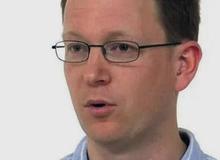C of E evangelicals: here’s our crisis plan
Radical plans are being developed for orthodox bishops to support evangelical parishes on a non-geographical basis – if the liberal trajectory in the Church of England on sexuality continues.
en staff

There would also be a new ‘fellowship’ of bishops, clergy and lay people which may ultimately become ‘an alternative structure.’
The proposals have been outlined by John Dunnett of the Church of England Evangelical Council (CEEC).
He said it wanted ‘to support the ongoing ministry of orthodox evangelicals within the C of E’ if the House of Bishops presses ahead with plans for its so-called ‘Prayers of Love and Faith’. The draft prayers ask ‘for God’s blessing on same-sex couples as they give thanks for their civil marriage or civil partnership,’ among other things. Final decisions could be made in November.
Dunnett declared: ‘In the event of orthodox Anglicans not being able to prevent the House of Bishops’ proposals being introduced, CEEC is committed to seeing certain provisions made available to support the ongoing ministry of orthodox evangelicals within the C of E.
‘First, the provision of orthodox bishops who will provide oversight for clergy and confirmations for lay people. CEEC intends to convene a college of already existing bishops (some currently serving as either a diocesan or suffragan, and others who have the status of assistant bishops in dioceses). It is anticipated that they will be available on a non-geographic basis to churches requesting their oversight.
‘Second, a national-level financial trust to enable individuals to give through an alternative structure to the PCC/Diocesan Board of Finance route. This will enable financial support to be given to orthodox churches across the dioceses, rather than it being used in general diocesan funds to support churches who intend to use the Prayers of Love and Faith.
‘Third, a ‘resetting’ of relationships within the C of E via the provision of a new “fellowship”. Both individuals and churches will be able to apply for membership, and this “fellowship” will include bishops, clergy and lay people, and a shadow governance structure elected by the membership.
‘Fourth, CEEC will launch pipelines for the securing of orthodox candidates for ordination, parochial appointments and senior leadership within the Church of England. These pipelines will be overseen by orthodox individuals with appropriate experience and qualifications, and supported financially.
‘All of these provisions are likely to be “informal” in the initial stages as they may not be legally recognised by the Church of England. However, on the assumption that they will generate significant engagement across the evangelical constituency, it is reasonable to assume that in time the Church of England will need to recognise these provisions and formally accept/endorse them. In the event of that not being the case, these provisions will help provide the ecclesial framework for an alternative structure.’
Ed Shaw, General Synod member and Co-Chair of the Church of England Evangelical Council, who is himself same-sex attracted, commented: ‘What has become clearer at the latest General Synod is how irreconcilably divided the Church of England is about the relationship between sex and marriage for all – not just gay people. We need to be praying for a renewed trust in the reality that saying sex is for the lifelong union of a man and a woman is a safeguard for everyone, and that Christ-like singleness can lead to a life of flourishing.’
Synod analysis from George Crowder here


